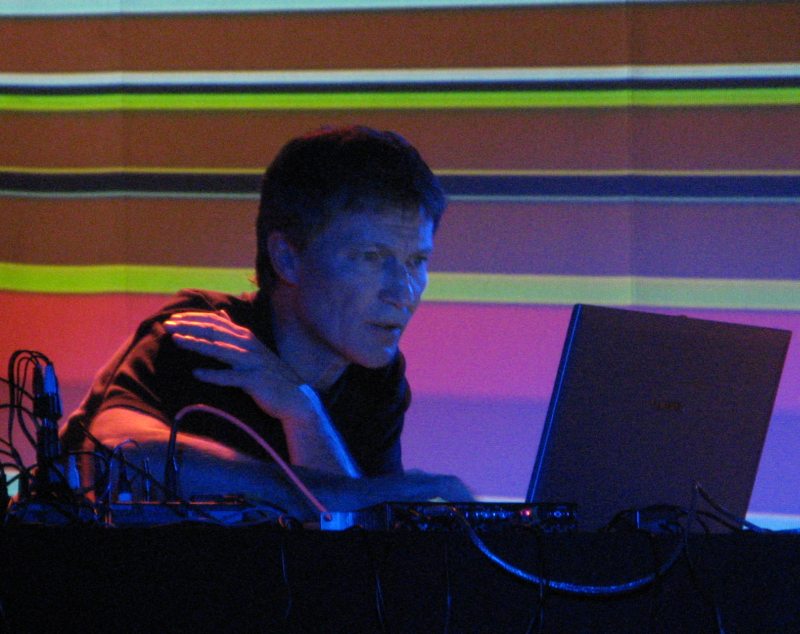Bowie’s ghost in Copenhagen: Rother, Lampe, Bargmann

It’s not entirely fair. Neu! guitarist Michael Rother, drummer Hans Lampe, and rhythm guitarist Franz Bargmann started off with maximum intensity with Neu!’s beautiful classic “Neuschnee.” Instead of the original’s tentative organ theme, Rother played it with his boosted guitar sound, making the melody rise to the ceiling like a triumphant fanfare. But still, my first thought was: Bowie!
Admittedly, the purpose of Bowie’s famous time in Berlin was to collaborate with the new German bands of the ’70s (Neu!, Kraftwerk, Tangerine Dream). But in a time before mobile phones and answering machines, all attempts at reaching the bands fell through—and Bowie, Eno, and Visconti instead had to create a DIY copy of their German role models. Even the title of the signature song “Heroes” is most likely stolen from Neu!’s track “Hero.” “Talent borrows, genius steals,” as Oscar Wilde noted.
And it’s not hard to understand Bowie’s fascination with the German sound. The Wirtschaftswunder generation had turned rock’s aesthetics on its head: where the rhythm in English and American blues-based rock was driven by sharp guitar riffs and syncopations, the guitars were now allowed to ring out in long, static soundscapes—a sound remarkably foreshadowing the noise rock of the ’80s and ’90s. And the music wasn’t driven by an organic “feel,” but by drum beats so mechanical and repetitive that they almost begged for the drum machine to be invented (Neu!’s preferred rhythm was indeed named “Motorik”).
Rock music would never be the same again: from noise rock to electronica (and all hybrids in between), later generations have further explored this paradox of expression: at once static and relentlessly surging ahead.
Abroad, it was dismissively termed “Krautrock,” and it was this pure primal sound that Rother’s power trio recreated at Jazzhouse. Rother himself handled lead guitar, keyboards, and backing tracks, while Franz Bargmann tirelessly chopped away at the rhythm guitar. Unfortunately, Neu!’s legendary drummer Klaus Dinger passed away in 2008, but his Neu! colleague Hans Lampe on drums drove the music forward with the authentic, mechanical groove.
Except for the beautifully swaying “Seeland,” the tempo remained mostly high throughout the evening. And perhaps it was this intensity that explained why something as niche as monotonous, instrumental rock without much harmonic movement or traditional structure so thoroughly captivated the audience of a packed Jazzhouse.
For while a music nerd like me might find Krautrock relatively more immediately appealing than many other musical experiments. But I never thought I’d see the day when Neu!’s uncompromisingly monotonously pumping “Hallogallo” would fill the dance floor(!) at Jazzhouse(!).
So that evening at Jazzhouse, the listener indeed came face to face with a piece of music history. But also with a sound meeting us across ages and trends—and for a moment, making time stand still. “Für immer.”
Leave a Reply